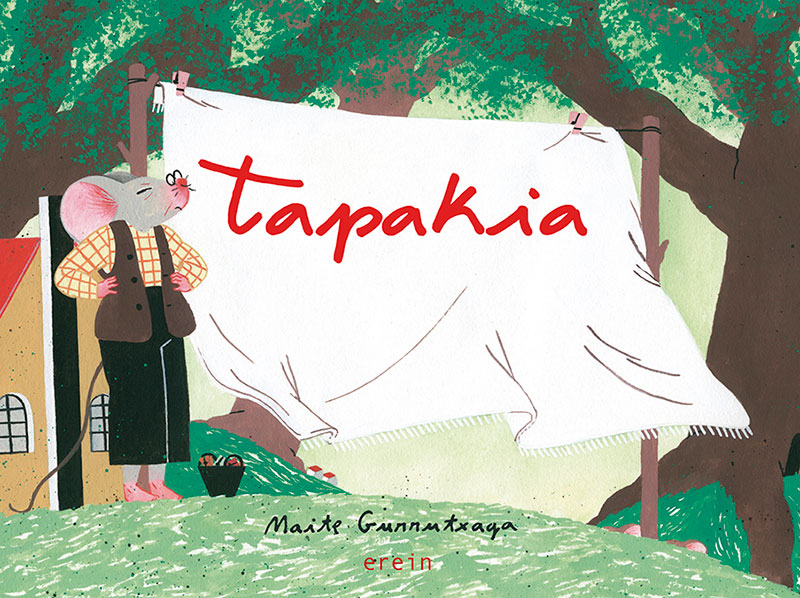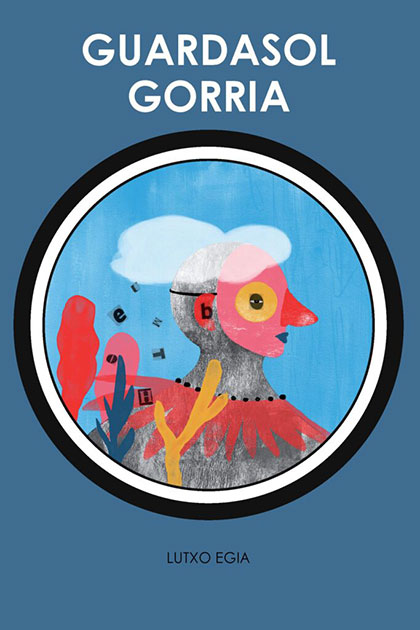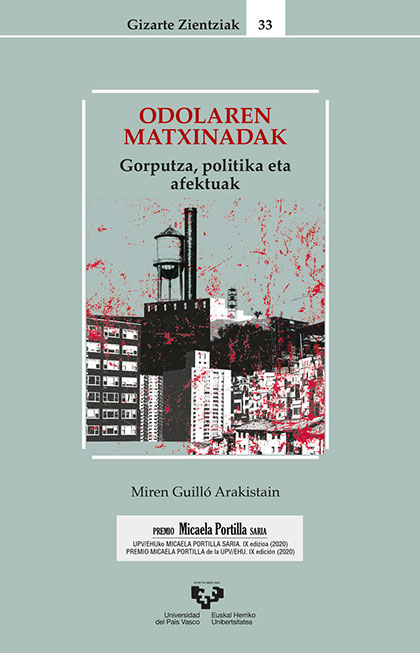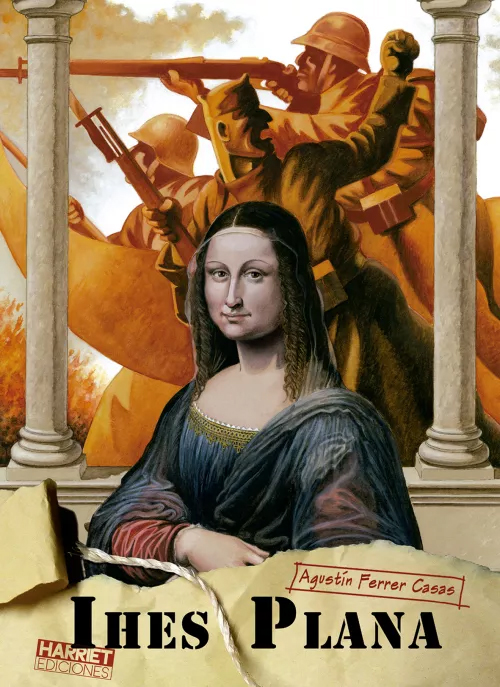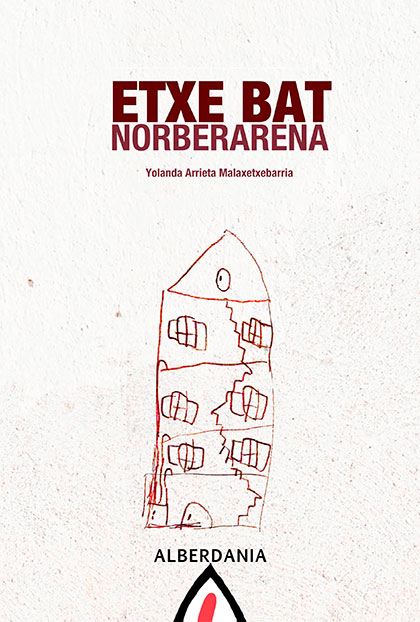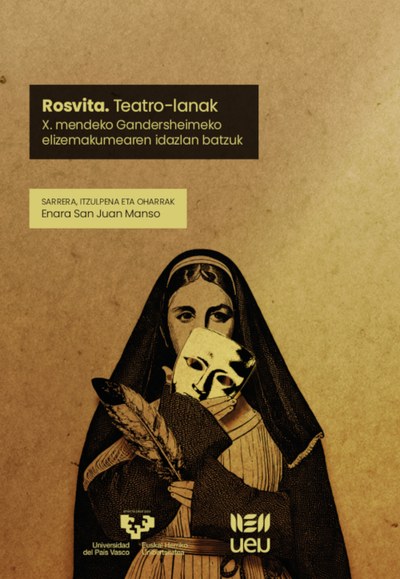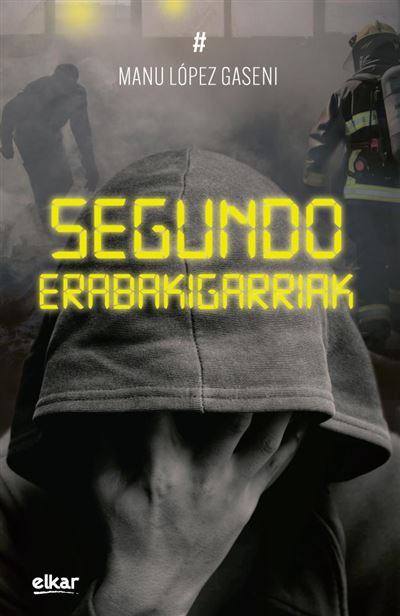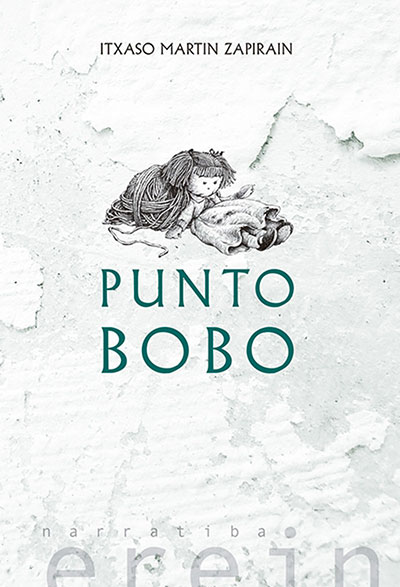The sea that protects us
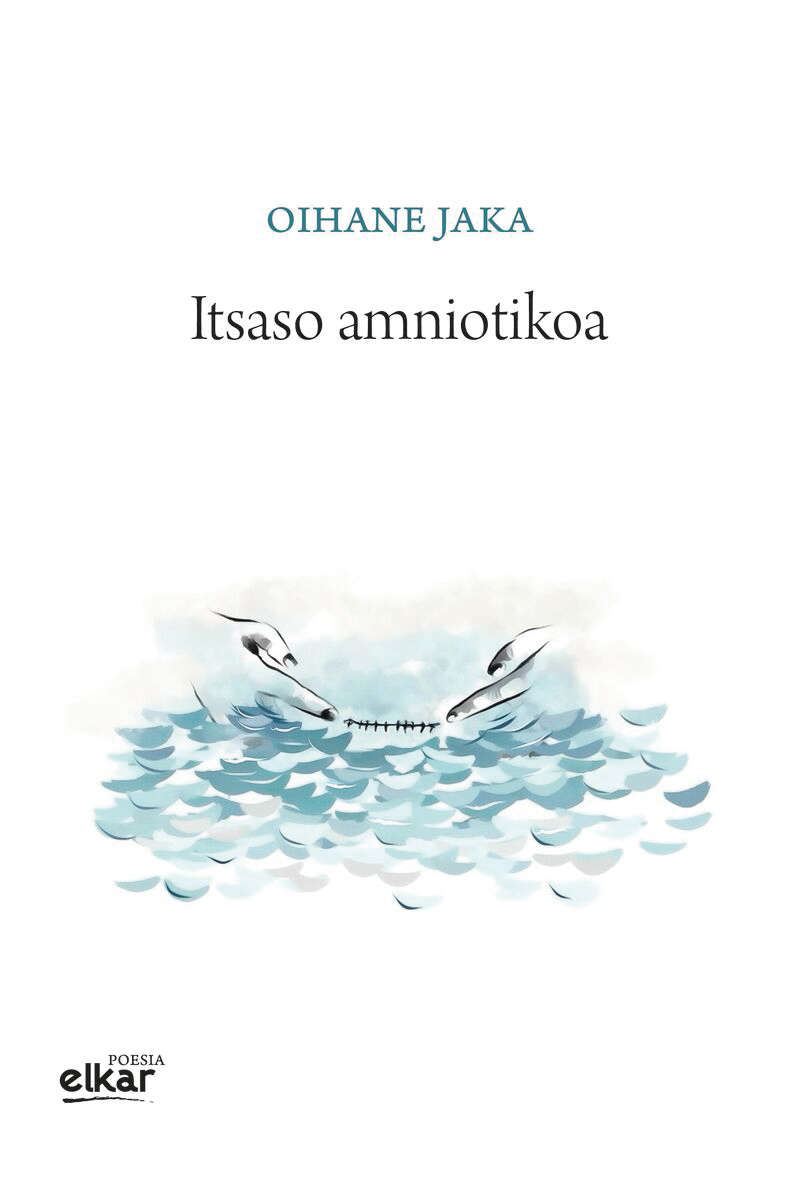
We opened the poems book by Oihana Jaka and found two deals. One father and another son. It is worth noting for its direct relationship with the poems we will find. The book is structured in three parts:
Hamaika urte, Hamaika hilabete eta Hamaika egun. Number eleven is also a way of saying a lot in Basque. They are the time intervals that are introduced within each other, year, month and day, and can give rise to the matrix figure quoted in the book. I think he has managed to fade the three parts: through different meanings given to the same figures, among others. In the first part the poetic self refers to the age at which his
father died. In this section we will find poems that speak of the footprint that left this early loss, for example, in the last two lines of the last poem: My father's death would make me freer,
/ to free me if I was not so young. The poem on page 17 is written in mirror. It uses the same phrases from top to bottom, thus forming a beautiful palindromo. I poetic, who continues to celebrate his father's birthday, lives like a mirage, and I think his father's shape and birthday beautifully gathers his content. I also loved the poem that reflects on how (a) your dead do not know how (20). In the second part, the poetic self talks about the loss of the child who has lost before birth. Where are the unborn children going?
/ Now my womb is
an empty house (27). I poetic also tells us about the pregnancy of a second child before jumping to the third episode: I have two hearts / and I am not a monster. / One marriage within another / alone./ The third part is the longest and the title is limited by the time it takes the eleventh day to return from the hospital home. It talks about the birth that occurred undesired, with the pain, stains and wounds that this caused. Doubts about the birth after the lost child, fear of forgetting this spot, etc. In this section the author has used powerful images: The wave that got me from the ear / that came out of the paw / flooded. - With fish (57). Or the amnesic bladder (62). Sometimes I find it confusing to whom he refers or to whom the voice speaks. I liked the style: from time to time it is correct and raw, it makes good use of images and metaphors, it underlines language and everyday details, it uses ingenious word games... Ione Gorostarzuren reminded me of the book "It is not childbirth", which, although different, I see the need to name some topics. And I have also taken the smell of Karmele Igartua: seeing how the image of the sea acquires various meanings or in that poem
on page 65 (it is not the same...). I also invite you to enter that sea.
Tapas
Maite gurrutxaga
Sowing, 2025
-----------------------------------------------------------
If we see the cover of this book of tapas, we can see in it a peppered mouse next to a white and white tapas that is drying. Then, looking at the protection sheets that we... [+]
Zuzi iraxegia. euskal emakume idazleak eta literatura klasikoa
Amaia Alvarez Uria
Testu zaharrak, 2024
----------------------------------------------------------------
Liburua esku artean izan aurretik ere arnas luze bat atera zitzaidan barru- barrutik: “ze... [+]
Martin Martina and the Mystery of the Golden Comb
by Amancay
Gaztelañaga Batu, 2024
-----------------------------------------------------
Amancay Castañaga launches the mystery of Martín Martina and the golden comb accompanied by the illustrations of Alain Martínez... [+]
Guardasol gorria
Lutxo Egia
Susa, 2024
Under the asphalt, the flower
Text: Monica Rodriguez
Illustrations: Rocío Araya translation
of: Itziar Ulcerati
A fin de cuentos, 2025
Odolaren matxinadak. Gorputza, politika eta afektuak
Miren Guilló
EHU, 2024
Miren Guilló antropologoaren saiakera berria argitaratu du EHUk. Odolaren matxinada da izenburu... [+]
Zero. Transhumanismoa ate-joka erdi aro berrian
Aitor Zuberogoitia
Jakin, 2024
-----------------------------------------------------------
Hasieran saiakera filosofiko-soziologikoa espero nuen, baina ez da hori liburu honetan aurkitu dudan bakarra. Izan ere, biografia... [+]
Ihes plana
Agustín Ferrer Casas
Itzulpena: Miel A. Elustondo
Harriet, 2024
---------------------------------------------------------
1936ko azaroaren 16an Kondor legioko hegazkinek Madrilgo zenbait museori egin zieten eraso. Eta horixe bera da liburu honetara... [+]
Etxe bat norberarena
Yolanda Arrieta
Alberdania, 2024
Gogotsu heldu diot irakurketari. Yolanda Arrietaren obra aski ezaguna zait eta iragan maiatzean argitaratu zuen proposamen honetan murgiltzeko tartea izan dut,... [+]
Rosvita. Teatro-lanak
Enara San Juan Manso
UEU / EHU, 2024
Enara San Juanek UEUrekin latinetik euskarara ekarri ditu X. mendeko moja alemana zen Rosvitaren teatro-lanak. Gandersheimeko abadian bizi zen idazlea zen... [+]
Idazketa labana bat da
Annie Ernaux
Itzulpena: Leire Lakasta
Katakrak, 2024
Decisive seconds
Manu López Gaseni
Beste, 2024
--------------------------------------------------
You start reading this short novel and you feel trapped, and in that it has to do with the intense and fast pace set by the writer. In the first ten pages we will find out... [+]
When the dragon swallowed the
sun Aksinja Kermauner
Alberdania, 2024
-------------------------------------------------------
Dozens of books have been written by Slovenian writer Aksinja Kermauner. This is the first published in Basque, translated by Patxi Zubizarreta... [+]
Puntobobo
Itxaso Martin Zapirain
Sowing, 2024
----------------------------------------------------
The title and cover image (Puntobobo, Wool Bite and Rag Doll) will suggest mental health, making the point and childhood, but more patches will be rolled up as the book... [+]
Itsasoa bete urre
Dani Martirena
Irudiak: Ana Ibañez
Txalaparta, 2022
--------------------------------------------
Liburu honetara barneratzen den irakurleak sentsazio ugari izango ditu. Deigarria da azaleko letren urre kolorea eta zuritasuna, goialdean ageri den... [+]











